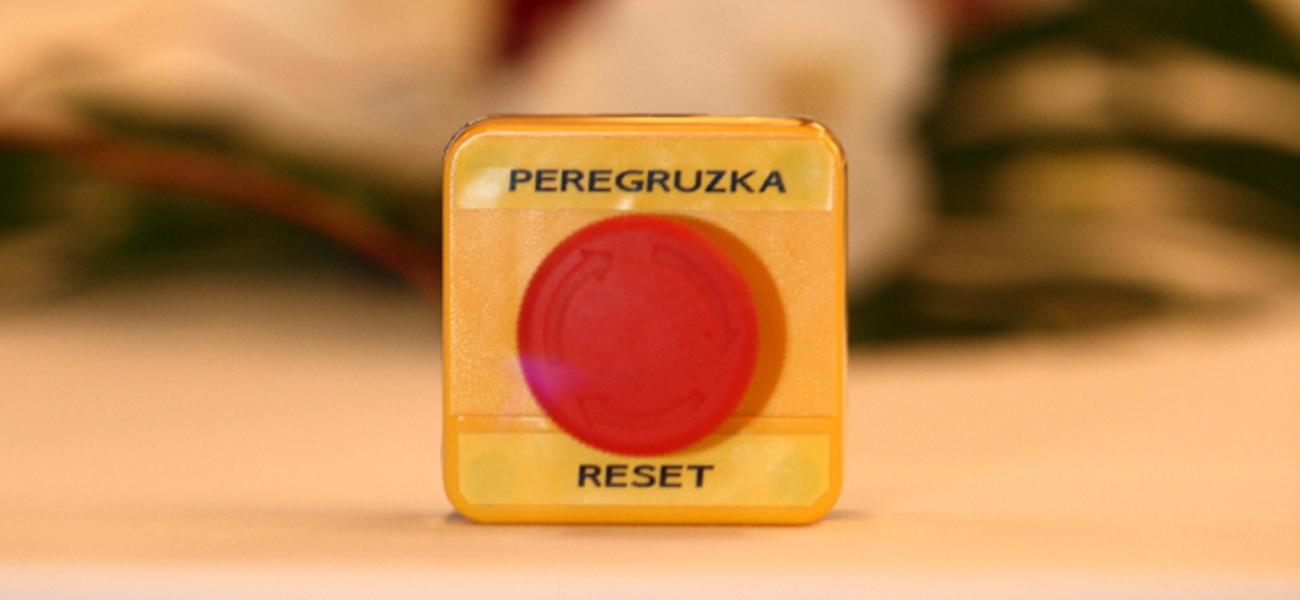
Why the 'Reset' Didn't Last
Ten years ago this week, then Secretary of State Hillary Clinton followed up on Vice President Joe Biden’s proposed “reset” in relations with Moscow by giving her Russian counterpart, Sergei Lavrov, a symbolic red button marked “RESET.” While the English version of the word was correct, the Russian, famously, was not, saying “OVERLOAD” instead, due to two missing letters. The misspelling proved to be a bad omen: Within a few years, the relatively low-hanging fruit available to policymakers on both sides had been picked and relations soured again quickly.
Below, we have compiled 11 Russia experts’ insights on the various reasons that the reset didn’t last. What did Washington and Moscow do wrong? What could they have done differently? Needless to say, mutual mistrust and resentments had piled up in the 20 years between the Cold War’s end and the start of the Obama administration’s reset; meanwhile, “broad-based institutional ties between the two countries” were absent, as one expert noted, and the number of “stakeholders in the bilateral relationship” was small. There were likewise plenty of issues on which the two sides didn’t see eye to eye—including European security, competition in the post-Soviet space and tensions in the Middle East. Even when the reset kicked in, as two experts have written, neither the U.S. nor Russia embraced “a strategic approach” or “had the imagination to go beyond the older model of relations.”
Among the Kremlin’s poor choices, those that stand out are its “unacceptable aggression against Ukraine,” its “repressive measures” against its own citizens and giving asylum to Edward Snowden, which "led [President Barack] Obama to cancel a summit" with his Russian counterpart, Vladimir Putin. Former U.S. Ambassador Michael McFaul, whose job had been to advance the reset, blamed Putin for changing Russia’s policy and rejecting “the win-win approach we’d developed” with Dmitry Medvedev, Putin's one-term stand-in as president.
The list of concerns about Washington’s questionable choices is longer, perhaps because most of the experts below are Americans who weren’t directly involved in the policymaking but are still more likely to give policy advice to their own government than Moscow’s. Here are the themes that come up most often: insisting that Russia accept U.S. primacy and the rules of a U.S.-led world order, including some sort of domestic “transition toward democracy”; treating Russia as a foe, “demonizing Putin” and investing too much in the personal relationship between Obama and Medvedev; “cutting off all communication and cooperation” after the Ukraine crisis; not taking Russian interests seriously enough and relegating relations with Moscow to a “secondary” status on the U.S. foreign policy agenda.
What can be done differently? For the handful of experts who offer any recommendations at all, again mainly to the U.S. side, the key seems to be finding a way to make Russia “an asset in America’s global strategy” and “a basis on which the two sides can collaborate where their interests overlap.” The issue, according to Henry Kissinger, “is whether both countries are able to achieve their minimum security objectives and cooperate toward stability in regions within their reach.”
The experts are listed in alphabetical order and their comments from newest to oldest, reproduced verbatim from the publications where they originally appeared.
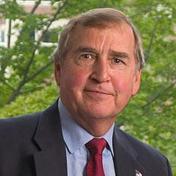
Graham Allison
Douglas Dillon Professor of Government, Harvard Kennedy School; Principal Investigator and Editorial Board Member, Russia MattersPresident Obama came to office with grand ambitions to “reset” relations with Russia and diminish the role of nuclear weapons in international affairs. When he stepped down eight years later, U.S.-Russia relations were at their lowest ebb since the nadir of the Cold War, and the possibility of the use of nuclear weapons in Europe had again become a topic of debate. While there can be no doubt that Putin deserves most of the blame for this outcome, the bottom line for Americans is whether they are safer now than eight years ago. Did Obama’s policy of “demonizing Putin” induce better or, alternatively, worse behavior? By punishing Russia for its unacceptable aggression against Ukraine by cutting off all communication and cooperation with Russia—including joint actions to secure nuclear weapons and materials … and communication between commanders in Europe and the Middle East whose military forces were operating in close proximity—did Washington decrease or increase the level of risk? (The National Interest, 08.14.17)
To compensate for its policy failures, the Obama White House crafted two narratives. On the one hand, it claims that Russia is a loser who “doesn’t matter anymore,” so to speak. No longer a global player, it is a power in terminal decline… On the other hand, as a high-level member of the administration confided with some embarrassment, in its final years, when facing intractable international problems, Obama’s instinct has been to “blame Russia first.” … As Henry Kissinger has explained most clearly, what Obama… really means is that Putin’s Russia should repent, reverse course, and follow in the footsteps of Germany and Japan in accepting its place in a unipolar, American-led international order. In Kissinger’s words, “The U.S. has put forward no concept of its own except that Russia will one day join the world community by some automatic act of conversion.” But as he notes, this is a fantasy: Russia is too big, too powerful and too committed to maintaining its sovereignty as a great power to become a supplicant in an American-dominated world order. … Kissinger’s alternative—with which we strongly agree—is to seek to integrate Russia into an international order that takes into account Moscow’s minimum essential interests. … The objective of American policy is not to placate Russia or please Putin. Rather, it is to advance vital U.S. national interests. As seen during Obama’s second term, when treated primarily as a “foe,” Russia can undermine important American objectives. If it can be persuaded to act more as a partner, within the framework of a sustainable, if difficult, working relationship, Moscow can help advance U.S. foreign-policy objectives in a number of ways. (co-authored with Dimitri Simes, The National Interest, 12.18.16)

Thomas Graham
Managing Partner, Kissinger Associates; Senior Fellow, Jackson Institute for Global Affairs, Yale University; Senior Director for Russia on the NSC staff in the George W. Bush AdministrationEach American administration—and we’ll leave Trump to the side for a moment—has come to office thinking that it had to, and it could, build a constructive relationship with the Russians. The Clinton administration certainly did that. They talked about a strategic alliance with Russia formed. The Bush administration did that. They talked about a strategic partnership with Russia. The Obama administration comes in and does that with the reset. … I supported that policy. I thought it was the right way. The problem that we’ve had all along is that we’ve always linked cooperation with Russia with this rhetoric, at least public rhetoric, about Russia making some sort of transition toward democracy. (Frontline, 06.19.17)
The reset was the right approach… [But Clinton and Obama's team could have done more to] actively reach out to Putin and open lines of communication. (Reuters, 09.20.16)
So far, both the U.S. administration and the Kremlin have resisted taking a strategic approach. In her article in Foreign Policy a year ago on the “pivot” toward Asia, Secretary of State Hillary Clinton did not once mention Russia, even though Russia was then preparing to act as host to the Asia-Pacific Economic Cooperation summit meeting in Vladivostok in September 2012 in part to underscore its determination to return as an Asian power, and was playing a vital role in supplying American forces in Afghanistan. Putin canceled his participation in last May’s Group of 8 summit meeting at Camp David at the last moment, something no world leader had done before. On the U.S. side, this oversight grows in part out of the discomfort America has with the very idea of Russian power, grounded in the long Cold-War struggle. Having confronted malevolent Soviet power for so long, America resists the idea that Russia could ever have a positive role in American strategic interests. On the Russian side, there is still great resentment over the way the United States treated Russia after the end of the Cold War, and a fair amount of suspicion that U.S. policy is aimed at weakening Russia today. (co-authored with Dmitri Trenin, New York Times, 12.12.12)

Nikolas Gvosdev
Senior Fellow, Foreign Policy Research Institute; Senior Fellow, Carnegie Council on Ethics and International Affairs; Professor of National Security Affairs, U.S. Naval War College[T]he reset depended on a number of particular factors. First and foremost, it could only succeed as long as the contentious question of Ukraine’s geopolitical orientation remained quiescent. U.S. legislation—sponsored and supported by then Senator Barack Obama in 2007—made it U.S. policy to keep a door open for Ukraine’s eventual membership in NATO, but Washington was not going to force the NATO path if Ukraine itself was not interested. The election of Ukrainian President Viktor Yanukovych in 2010 saw the government in Kiev itself take NATO membership off the agenda in favor of neutrality and of agreeing to a long-term Russian naval presence in Crimea. Second, the reset with the United States—as well as with key European partners—was aided by the presence of Dmitry Medvedev in the presidential chair. … Putin’s decision to return to the presidency in 2012 and the protest movement it engendered in Russia damaged the optics of the reset, which had focused on the productive partnership between Obama and Medvedev. The Russian establishment’s suspicion of American motives was also heightened by two other developments. First, the refashioning, rather than cancellation, of the U.S. missile defense program for the European theater reignited suspicion that missile defense was ultimately directed against Russia… Second, Moscow complained about what was seen as a bait and switch on Libya: Russia’s willingness to abstain on a U.N. resolution calling for a no-fly zone over the country after the anti-Gadhafi rebellion began in 2011 was based on its understanding that the U.S. and Western powers would create safe areas for civilian refugees, not become co-belligerents alongside the rebels to overthrow Gadhafi. Subsequently, Moscow used its veto power at the United Nations to prevent any repetition of the Libya scenario in Syria, where Russia had concrete interests tied with the survival of the Bashar al-Assad regime—interpreted by Washington as intransigence to support a brutal dictator—and then the Kremlin gave asylum to Edward Snowden, a gesture that led Obama to cancel a summit with Putin. But the main nail in the coffin of the reset proved to be Ukraine. Once the Maidan protest movement empowered a pro-Western government in Kiev, the reset could not survive the resumption of geopolitical competition over Ukraine. (Russia Matters, 10.26.16)
After a period of healthier ties following the much-heralded reset, U.S.-Russia relations appear to be deteriorating. … Nor does the immediate future bode well for "resetting the reset." Putin is expected to reclaim the Russian presidency after next month’s election, and he has not forgotten or forgiven the Obama team's public relations effort back in 2009 to categorize President Dmitry Medvedev as the wave of the future and America's preferred interlocutor. At the same time, Putin and members of his immediate circle, who consistently expressed concerns about the "reset," feel that their doubts have been justified. In their narrative, Russia made many compromises to American preferences over the past few years, including relegating concerns about missile defense to a nonbinding preamble in the New START agreement; agreeing to much stronger sanctions on Iran and suspending a lucrative contract to provide Tehran with an advanced air defense system; and acquiescing to the U.N. Security Council resolution authorizing a no-fly zone for Libya. But these produced no real quid pro quos for Russian interests. (World Politics Review, 02.10.12)

Fiona Hill
White House National Security Council Senior Director for European and Russian Affairs (on leave of absence from the Brookings Institution)Few issues better illustrate the limits of the Obama administration’s “reset” with Russia than the crisis in Syria. For more than a year, the United States has tried, and failed, to work with Russia to find a solution to end the violence. … [Putin’s] aversion to forcible regime change is intense and unwavering. (Foreign Affairs, 03.25.13)
Obama’s first term did see some thaw with Moscow—the “reset,” a modest relationship with then President Dmitry Medvedev, and the passage of the New START agreement—but it’s clear that things have become frostier since Vladimir Putin returned to power. It’s an indication of an impasse in dealing with the Kremlin—and perhaps one that is fundamentally about personality. (co-authored with Clifford Gaddy, Foreign Policy, 02.15.13)
The Obama administration has decided it’s time to “reset the reset” with Russia. The reset was one of the administration’s first foreign policy initiatives in 2009 and certainly reduced bilateral tensions for a period. But President Obama now faces Vladimir Putin as Russia’s president instead of Dmitry Medvedev, and the entire premise of U.S.-Russia relations will have to be reviewed. … Where does this leave the reset? The reality is this: There are no big deals to be had with Putin. Outside the traditional U.S.-Russian bilateral realm of arms control, there is no great opportunity for the Obama administration in Russia. The only quid pro quo Putin would likely strike with the United States is one no administration could (or would) contemplate—where Moscow agrees not to make life too difficult for Washington, as long as the U.S. ignores Russian domestic developments and human rights abuses. (New York Times, 02.04.13)
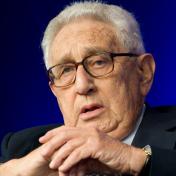
Henry Kissinger
Chairman, Kissinger Associates, Inc.In response to the question “Can we reset relations with Russia?”: “Reset” is not the appropriate word. I prefer “adaptation to the new circumstances of a world in upheaval.” The issue is whether both countries are able to achieve their minimum security objectives and cooperate toward stability in regions within their reach. It is a formidable, but necessary, enterprise. (The Atlantic, 11.10.16)
Dmitry Medvedev was president during the beginning of the reset, with Putin acting as prime minister in a bow to a Russian constitutional requirement limiting presidents to two consecutive terms. … The White House, in that interval, carefully limited contact with Putin. Some in the administration seemed to hope that Medvedev would dismiss Putin as prime minister … and that the evolution of Russia would be toward a democratic, Western-oriented kind of aspiring NATO member. It was part of the argument in your [Jeffrey Goldberg’s] interview [with Barack Obama] that history is moving in America’s direction and that Putin will eventually realize it. When Putin resumed the presidency in 2012, the reset inevitably faltered. To understand Putin, one must read Dostoyevsky, not “Mein Kampf.” … Russia seeks recognition as a great power, as an equal, and not as a supplicant in an American-designed system. (The Atlantic, 11.10.16)

Andrew Kuchins
Senior Fellow and Research Professor, Center for Eurasian, Russian and East European Studies, Georgetown UniversityTo some extent the demise of the [reset] policy was a result of its successes. As one [Russian] interviewee put it, “Once the New START Treaty, WTO accession, the U.S.-Russian 123 Civilian Nuclear Power Agreement, the Iran nuclear deal, and the Northern Distribution Network were accomplished, the reset ran out of its mission. Neither side had the imagination to go beyond the older model of relations.” Several Russians pointed to the spring of 2011 as the turning point in relations. Differences over Libya and later Syria, missile defense, and the looming Russian presidential succession all conspired to derail the relationship. One Russian speaker suggested it may have been a mistake on the American part not to brief then-Prime Minister Vladimir Putin along with President Dmitry Medvedev (whom the Obama administration did brief) on NATO’s plan to intervene in Libya. This episode became a point of criticism against Medvedev and affirmed Putin’s suspicions that Medvedev was too naïve and inexperienced to deal with the United States. One interviewee pointed to the trip of Vice President Joe Biden to Moscow in March 2011, when Biden urged Putin not to return to the presidency. … The failure of negotiations over missile defense, also in the spring of 2011, further contributed to weakening Medvedev’s position. This breakdown carried considerable significance because an agreement would have symbolized a genuine break-out from the Cold War relationship. One interviewee, in contrast to many U.S. views on the topic, de-emphasized Putin’s return to the Kremlin as the main cause for the reset’s collapse. The policy was vulnerable, he said, because it failed to establish a new strategic foundation for relations. … The Obama administration reached another key milestone in the reset when it helped to finalize Russia’s historic entry into the World Trade Organization in late 2012. But this achievement was undercut by the administration’s subsequent endorsement, albeit reluctant, of the Magnitsky Act… (Center on Global Interests, December 2016)

Robert Legvold
Marshall D. Shulman Professor Emeritus of Political Science, Columbia UniversityU.S.-Russian relations are where they are because of the actions, some misguided, some inadvertent, by both sides over the two decades after the collapse of the Soviet Union in 1991—none more destructive than the Russian seizure of Crimea and intervention in the separatist war in eastern Ukraine. (ISS Forum, 09.06.17)
START II was a highlight [of the reset], as was the creation of a northern distribution network with Afghanistan. The agreement to tighten sanctions on Iran … was a benchmark the Obama administration set. The International Security Conference on Fissile Raw Material was also a success. The failure to make serious progress on missile defense was the first sign of trouble though, as this was a major priority at the Lisbon-NATO summit, which Medvedev attended. In Libya, the Russians were upset about regime change… I would argue that by 2011-12, with the anti-Americanism coming out of the presidential elections, hostilities had boiled over. … Everything that has characterized the current Russia-U.S. tensions was in place before Ukraine. Iraq is where it got moving and Ukraine just pushed it over. (Huffington Post, 11.10.15)
Relations never really moved to the next phase, as further progress was waylaid by frictions over missile defense, NATO’s war in Libya, the civil war in Syria, and a host of repressive measures that Russian President Vladimir Putin’s regime directed at its own citizens. But even those obstacles never completely dashed the hope that Moscow and Washington might find common ground on a number of critical issues. That hope is now gone. The crisis in Ukraine has pushed the two sides over a cliff and into a new relationship, one not softened by the ambiguity that defined the last decade of the post–Cold War period, when each party viewed the other as neither friend nor foe. Russia and the West are now adversaries. (Foreign Affairs, 06.16.14)
Moscow and Washington need to confront the core source of tension in the relationship—the topic rarely discussed but the one shadowing every other dimension of their interaction—namely, the way each judges the aims and actions of the other in the post-Soviet space. (“Responding to a Resurgent Russia,” 2011)
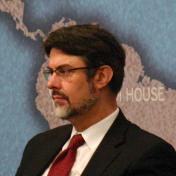
Anatol Lieven
Senior Research Fellow, International Security Program, New AmericaSince the end of the Cold War, Russia has not opposed the United States out of blind anti-Americanism. In the former Soviet countries, Russia has defended what the Russian establishment sees—rightly or wrongly—as vital Russian national interests. Elsewhere in the world, Russia has clashed with the United States for reasons that have often been shared by many Americans, and have often later been proved correct: opposition to the invasion of Iraq and the overthrow of Col. Muammar el-Qaddafi’s regime in Libya being the most notable examples. While Russia wants good relations with the United States, it will not lend blanket support to American global primacy. If that is what the Trump administration is hoping for, it will be sorely disappointed, and the latest attempt at reconciliation with Russia will fail. (New York Times, 02.14.17)
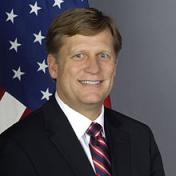
Michael McFaul
Director, Freeman Spogli Institute for International Studies, Stanford University; U.S. Ambassador to Russia (2012-2014)[The] period of relative harmony began to break down in 2011, owing primarily to the way that Putin reacted to popular democratic mobilizations against autocracies in Egypt, Libya, Syria—and Russia itself. The Libyan uprising in 2011 marked the beginning of the end of the reset; the 2014 revolution in Ukraine marked the start of the hot peace. Popular mobilization inside Russia was especially unnerving to Putin. (Foreign Affairs, 06.14.18)
The Kremlin had pivoted on us, portraying the United States as Russia’s enemy. The Kremlin was the one rolling back the reset, not the U.S. administration. (Politico, 05.19.18, excerpt from McFaul’s book “Cold War to Hot Peace: An American Ambassador in Putin’s Russia”)
Putin had little enthusiasm for the reset—he didn’t believe in the win-win approach we’d developed with Medvedev. Massive demonstrations a few months later over a falsified parliamentary election intensified Putin’s sentiment, since he blamed us for sparking those protests. … I had become ambassador to advance the reset, and instead I presided over its demise. But it was not because we changed our policy. It was because Putin changed Russia’s. (The Washington Post, 05.11.18)
The two events that were crucial to derailing U.S.-Russian relations were Vladimir Putin’s decision to return to the presidency, and the mass protests against election fraud in the 2011 parliamentary elections. … [W]hat changed was Putin’s return to the Kremlin and his perception that America was promoting regime change, culminating in the Maidan revolution, which was in fact launched by the journalist Mustafa Nayyem—not Joe Biden, Barack Obama or Victoria Nuland. The United States didn’t intervene until things started getting violent. (Meduza, 05.10.18)
Irritants were a factor [in the reset’s end]. Medvedev was disappointed that we were not making fast enough progress on missile-defense cooperation. The Obama administration grew frustrated by Moscow’s foot-dragging regarding the commencement of new negotiations about deeper cuts in our nuclear arsenals. The Magnitsky Act … ruffled Kremlin feathers. But all of these issues could have been managed. The real drama in our relations came not from officials in the White House or the Kremlin but from common people demonstrating in the streets to demand greater freedoms and democratic rule in 2011—in Egypt, Syria, Libya and then, at the end of the year, in Russia. Two years later, demonstrators again, this time in Ukraine, triggered further tensions in U.S.-Russia relations. Putin’s response to those events, first the annexation of Crimea and then intervention in support of insurgents in eastern Ukraine, ended for good our ability to cooperate and compelled Obama to revert to more coercive instruments to deal with Russia. (Foreign Policy, 01.06.17)

Angela Stent
Director, Center for Eurasian, Russian and East European Studies and Professor of Government and Foreign Service, Georgetown University[A] problem in the Obama administration is that the reset was very much predicated on the relationship between Medvedev and Obama, even though they understood that strings were being pulled by Putin. (The Atlantic, 04.04.14)
The two sides disagree on a wide range of questions. Yet there are critical international issues—such as Iran and Syria—on which progress is not likely without some cooperation. The challenge is not to try again to “reset” bilateral relations, but rather to find—once the Ukrainian crisis abates—a basis on which the two sides can collaborate where their interests overlap. (Project Syndicate, 03.26.14)
U.S. Vice President Joe Biden announced Obama’s new policy at the February 2009 Munich Security Conference: “It’s time to press the reset button and to revisit the many areas where we can and should be working together with Russia.” At the heart of this reset was prudent expectations management, using moderate rhetoric to create a set of achievable goals. The focus was interest-based pragmatism and a restrained policy toward Russia’s neighbors and toward Russia’s internal politics. From the outset, however, the Russians emphasized that reset was an American construct. … Nevertheless, Moscow responded to Washington’s renewed feelers for two reasons: the change in American policy and the 2008 global financial crisis, which affected Russia far more than its leaders had originally anticipated. From Washington’s point of view, the reset produced a number of concrete achievements: the New START treaty; unprecedented cooperation with Russia on Afghanistan…; securing Russian support for … tougher sanctions on Iran and Moscow’s cancellation of its contract to sell S-300 air-defense systems to Iran; the 123 Agreement promoting civilian nuclear cooperation…; the establishment of a bilateral Presidential Commission; and Russian membership of the WTO… From Moscow’s point of view, New START and cooperation on the NDN [Northern Distribution Network to Afghanistan] were viewed as successes, as was Russia’s entry into the WTO… However, Russia remains resentful that the United States never took seriously the need to redesign Euro-Atlantic security structures after the Georgia War and largely ignored President Dmitry Medvedev’s 2009 proposal to create a new, legally binding Euro-Atlantic super-treaty… The Obama administration, unlike the Clinton and Bush administrations, did not prioritize enlarging NATO, particularly to the post-Soviet space. Thus the Kremlin by and large viewed the results of the reset as a necessary American course correction rather than the beginning of a new phase in relations, raising the question of how much Moscow had bought into the reset. … In the absence of broad-based institutional ties between the two countries and given the limited number of stakeholders in the bilateral relationship, ties between the two presidents have played a disproportionate role in the relationship over the past two decades. (Brookings Institution, 12.31.12)

Dmitri Trenin
Director, Carnegie Moscow CenterBarack Obama’s administration’s attempt to “reset” the relationship with Russia in the aftermath of the 2008 Russian-Georgian war … paid little heed to the underlying causes of the conflict between Russia and the United States. With “modernization” as its principal theme, this policy, just as its predecessors, was premised on the idea of encouraging domestic change in Russia that would ultimately lead to changes in its foreign policy and acceptance of the U.S.-led international liberal order. None of this happened. U.S. policymakers were not the only ones frustrated. Their Russian counterparts too had many frustrations and complaints about U.S. handling of the bilateral relationship, which they have voiced repeatedly over the past three decades. The Russian narrative includes broken U.S. promises not to expand NATO, interference in Russian domestic politics and use of double standards when criticizing it for its democracy deficit, refusal to treat Russia as a peer, reliance on economic sanctions to achieve desired political and diplomatic outcomes, withdrawal from the ABM Treaty, unilateral use of military force, and regime change and destabilization under the guise of democracy promotion in countries within Russia’s self-proclaimed sphere of interests or that are simply friendly to it. (co-authored with Eugene Rumer and Andrew Weiss, Carnegie Endowment for International Peace, 07.02.18)
[Obama’s] policy toward Russia turned out to have been his biggest failure. … [H]e didn’t seek to provoke Russia to challenge the U.S. leadership. … But, unfortunately, he did precisely that. Obama’s handling of the Ukraine issue led to the confrontation between our countries. Not that Vladimir Putin did not make mistakes in his Ukraine policy, particularly before the Kiev Maidan. … The key problem of the U.S.-Russia reset is that there was neither a clear goal for improving their relations nor the strategy of how to reach this goal. I mean, as soon as the U.S. got what it wanted from Russia during the period of the early reset, Russia was again relegated to the secondary agenda. That might be the reason why the reset failed. (Russia Direct, 01.11.17)
Whoever wins the U.S. presidency, Washington’s Russia policy needs a reassessment and a rethink. The "reset" has run its course. The Obama administration’s vaunted policy of engaging with Moscow did away with the irritants of the previous administration and allowed a modicum of cooperation on issues such as Afghanistan supply routes. It has failed to give America’s Russia policy a strategic depth, but this was never the intention. … The real choice for the new administration lies between keeping Russia on the periphery of the U.S. foreign policy, which means essentially taking a tactical approach, and treating Russia as an asset in America’s global strategy. (Foreign Policy, 11.06.12)
See also Thomas Graham section above.
Photo by U.S. State Department, shared in the public domain.
The opinions expressed in this commentary are solely those of the author.
Nini Arshakuni
Nini Arshakuni is a graduate student associate at Russia Matters and Harvard's Davis Center for Russian and Eurasian Studies.
Angelina Flood
Angelina Flood is Russia Matters' editorial assistant and web coordinator.
Natasha Yefimova-Trilling
Natasha Yefimova-Trilling is editor of Russia Matters.

